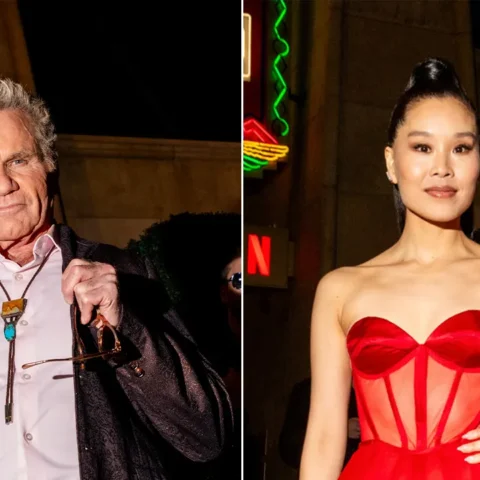When Will Asians Stop Being the Punchline? A Beginner’s Guide to Shane Gillis’ Return to SNL
In the ever-evolving landscape of comedy, the question of what is deemed acceptable humor is a topic of constant debate. Recently, the return of comedian Shane Gillis to Saturday Night Live (SNL) has reignited discussions about the portrayal of Asians in comedy and when they will cease to be the punchline. In this beginner’s guide, we’ll navigate through the controversy surrounding Shane Gillis, the history of Asian representation in comedy, and explore the broader implications of such instances.
Understanding the Controversy:
Shane Gillis’ return to SNL has been met with both applause and criticism. In 2019, Gillis faced backlash for making derogatory remarks about Asians, using racial slurs and perpetuating stereotypes in his podcast. While some argue that comedians should be allowed artistic freedom, others believe that promoting racial stereotypes contributes to a harmful narrative, reinforcing prejudices and perpetuating discrimination.
Transitioning to the History of Asian Representation in Comedy:
To comprehend the gravity of the situation, it’s essential to examine the historical context of Asians in comedy. For decades, Asians have been stereotypically portrayed in a one-dimensional manner, often reduced to offensive caricatures that perpetuate harmful stereotypes. From the exoticized “dragon lady” to the submissive “model minority,” these portrayals have reinforced damaging biases and hindered progress towards fair representation.
The Impact on Asian Communities:
The perpetuation of stereotypes in comedy has real-world consequences, impacting how Asians are perceived and treated in society. By normalizing harmful stereotypes, comedians like Shane Gillis contribute to a culture that marginalizes and belittles Asian communities. It’s crucial to recognize the power of comedy in shaping public perceptions and understand that humor should not come at the expense of perpetuating discrimination.
Asking the Tough Questions:
In the wake of Gillis’ return to SNL, many Asians are asking a fundamental question: when will they stop being the punchline? This question extends beyond Shane Gillis and SNL, reaching into the broader landscape of entertainment and media. As we strive for inclusivity and diversity, it’s time to question why certain communities continue to be targeted for comedic fodder and demand change.
The Role of Comedy in Society:
Comedy has long been hailed as a mirror to society, reflecting our values, beliefs, and biases. However, it’s essential to recognize that comedy can also shape and influence societal attitudes. As consumers of entertainment, we must be discerning and critical of the content we consume, challenging comedy that perpetuates harmful stereotypes and demanding more responsible representation.
A Call for Accountability:
With the rise of social media and increased awareness of social issues, audiences now have the power to hold comedians and entertainers accountable for their words and actions. The #StopAsianHate movement and other social justice initiatives have amplified the voices of those demanding change and an end to the perpetuation of harmful stereotypes.

Educating Comedians and Creators:
For progress to occur, it’s crucial to engage in open conversations about cultural sensitivity and awareness. Comedians and content creators must educate themselves on the impact of their words and strive to create content that is inclusive and respectful. By fostering a culture of understanding, we can work towards dismantling harmful stereotypes and promoting a more diverse and equitable entertainment industry.
Conclusion:
As Shane Gillis returns to SNL, the conversation around Asians being the punchline continues. This beginner’s guide has aimed to shed light on the controversy, explore the historical context of Asian representation in comedy, and emphasize the need for accountability and change. It’s time for society to move away from perpetuating harmful stereotypes and work towards a future where comedy is inclusive, diverse, and respectful of all communities.







